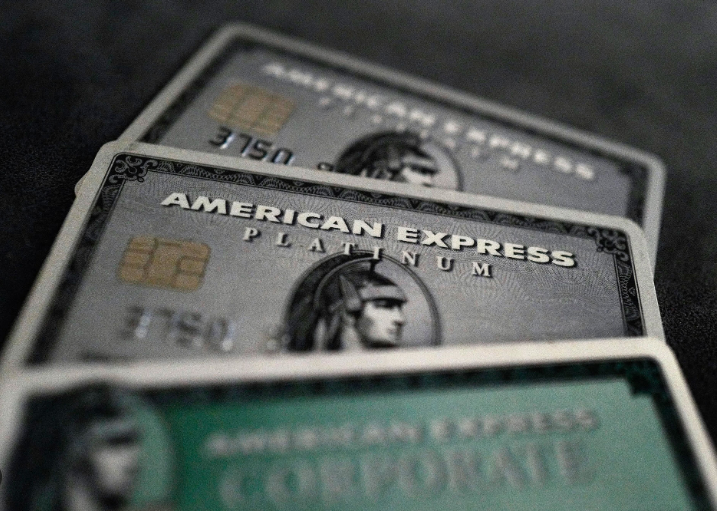eBay to Ban American Express Payments Cards over Fees


eBay has announced it will cease accepting American Express cards starting August 17, 2024, citing “unacceptably high fees.” This decision marks the latest development in an ongoing dispute over interchange fees, which are the fees merchants pay to card companies when customers use credit or debit cards for payments.
However, I believe eBay’s frustration may be misplaced, particularly in singling out American Express. According to a Securities and Exchange Commission (SEC) filing, Amex’s average interchange fee stands at 2.28 percent, just slightly higher than Visa and Mastercard’s 2.26 percent. While a 0.02 percent difference may accumulate with large transaction volumes, the core issue likely extends beyond such marginal variances.
eBay’s stance seems directed specifically at American Express, possibly influenced by their partnership with Mastercard for the eBay Mastercard. The reasons for not targeting Visa remain unclear, although Visa has not always been immune to similar challenges in the past.
Past retailer credit card prohibitions
In 2019, Kroger implemented a temporary ban on Visa cards at many of its stores due to similar concerns, though it quietly lifted the ban a few months later. Kroger, like eBay, has a co-branded credit card partnership with Mastercard, which typically includes revenue sharing and lower processing fees when using the retailer’s own card at its stores.
Similarly, Amazon threatened to stop accepting Visa cards in the United Kingdom a couple of years ago, citing high processing fees. However, they managed to reach a last-minute agreement to avoid discontinuing Visa acceptance. At that time, Amazon also had a UK-based credit card partnership with Mastercard.
It’s worth noting that I can’t recall any retailer ever banning Mastercard, but this may simply be coincidental. Visa, Mastercard, American Express, and Discover are all major, reputable companies that charge similar processing fees. The primary distinction lies in American Express and Discover functioning as both card networks and lenders, whereas Visa and Mastercard solely process credit and debit card transactions on behalf of banks (card issuers) like Bank of America, Chase, Citibank, Wells Fargo, and others.
Mr. Durbin goes to Washington
Senator Dick Durbin has long focused on challenging interchange fees during his tenure in Washington, D.C. In 2010, he introduced the Durbin Amendment as part of the Dodd-Frank Act, which capped debit card interchange fees at 21 cents plus 0.05 percent of each transaction price, along with an additional 1 cent per transaction for fraud prevention.
While Durbin and retailers celebrated this cost-cutting measure, ultimately, it was retailers who reaped the benefits. According to the Federal Reserve Bank of Richmond, only a small percentage of stores actually reduced prices following the implementation of the Durbin Amendment. Consumers faced unintended consequences such as reduced access to free checking accounts, fewer debit card rewards, and increased ATM and overdraft fees.
In recent years, Senator Durbin and several colleagues have pushed for the Credit Card Competition Act. Unlike previous debit card legislation, this bill doesn’t set explicit caps on credit card interchange fees. Instead, it mandates that each transaction be enabled with at least two card networks, allowing merchants to choose which network to use. Additionally, both networks cannot be Visa and Mastercard, as Durbin criticizes them for operating as a duopoly that sets prices centrally.
The major card networks are remarkably similar

Independent sources like the Nilson Report confirm that Visa and Mastercard together dominate over 80 percent of the market share in the credit card industry. Despite this concentration, competition remains robust with American Express and Discover also playing significant roles. In fact, Discover stands to become the largest U.S. credit card issuer pending regulatory approval of its merger with Capital One. Given this competitive landscape, one might wonder why eBay is particularly concerned about American Express’s processing fees.
The reality is that all four major card networks impose similar fees and enjoy nearly equal acceptance nationwide. Despite merchants’ and their advocates’ ongoing criticism of interchange fees, these fees have remained relatively stable on a percentage basis in recent years. However, they have garnered heightened scrutiny amid rising inflation and a decline in cash usage.
Retailers are missing the mark
For these reasons, it appears counterproductive for retailers to retaliate against higher card processing fees. According to the San Francisco Fed, consumers spend an average of $95 per transaction when using a credit card, significantly more than the $39 spent per cash transaction. Cash usage has declined from 31 percent of payments in 2016 to just 18 percent as of 2022.
The Small Business Payments Alliance notes that businesses typically see a 10 to 15 percent increase in average transaction size once they begin accepting credit cards.
While retailers understandably seek lower processing fees, there are potential drawbacks. If higher fees lead to reduced consumer spending or drive customers elsewhere, the cost could outweigh the savings on processing fees. Moreover, consumers generally prefer the convenience of credit cards over cash, despite the hidden costs associated with cash handling such as bank trips, armored car fees, and security risks.
The Credit Card Competition Act
The Merchants Payments Coalition, represented by Doug Kantor of the National Association of Convenience Stores, views the Credit Card Competition Act as a critical step towards addressing fundamental issues in the card payment industry. Kantor argues that Visa and Mastercard dictate high swipe fees uniformly across all banks issuing their cards, rather than allowing competitive pricing among banks. This cartel-like pricing structure sets a baseline of high fees, which the Act aims to disrupt by introducing competition among card networks.
However, history with the Durbin Amendment suggests that reducing processing fees could lead to reduced rewards for consumers, as interchange fees are a primary funding source for rewards programs. Lower consumer prices are also unlikely to follow. Additionally, concerns about data security arise, as merchants may opt for cheaper, less secure card networks if incentivized by lower fees under the proposed Act. While the Credit Card Competition Act may seem beneficial on the surface, it could potentially conceal adverse consequences for consumers and data protection.
In Conclusion
The existing system benefits consumers most. Credit cards provide superior rewards programs and buyer protections compared to other payment methods. Avoiding high interest rates by paying in full addresses the primary drawback. While I understand retailers’ need to be profitable, accepting credit cards is essential in today’s business landscape. The shift towards a cash-first economy is unlikely to return in 2024.








